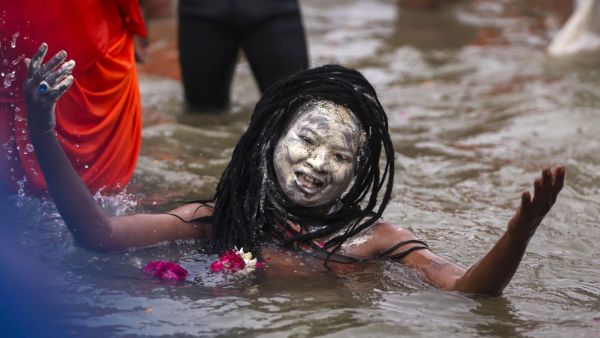
Mumbai: The grand Maha Kumbh 2025 began with the first holy Amrit Snan on the auspicious day of Paush Purnima. This special event was conducted with devotion and traditional rituals, marking the start of a spiritually enriching journey for millions of devotees. The Maha Kumbh, held every 12 years, is one of the largest spiritual gatherings in the world, drawing people from all walks of life.
After Amrit Snan on 13 January and 14 January (Makar Sankranti), all eyes are now on the third holy bath, which is considered extremely significant. Known as the Mauni Amavasya Amrit Snan, it carries immense religious importance and is eagerly awaited by devotees. Let’s dive into the details of this sacred event, its date, and the auspicious timing for participating in this ritual.
The third Amrit Snan of Maha Kumbh is considered one of the most important events, celebrated on Mauni Amavasya. This year, Mauni Amavasya falls on January 29, 2025. The spiritual significance of this day is immense, as bathing in the holy waters and engaging in charitable acts on Mauni Amavasya is believed to purify the soul and confer lifelong blessings. This Amrit Snan, being part of Maha Kumbh, further amplifies its importance.
The Mauni Amavasya Amrit Snan will be performed during the Brahma Muhurta on January 29, 2025. The auspicious timing for the sacred bath is as follows:
| Start Time | End Time |
| 05:25 | 06:18 |
Bathing during this time is considered extremely meritorious, with the power to cleanse sins and bestow spiritual liberation.
The Amrit Snan dates in Maha Kumbh are selected based on planetary alignments and celestial events, making them highly auspicious. Bathing in the sacred rivers on these dates is believed to:
According to traditional beliefs, participating in the Amrit Snan at Mahakumbh grants divine blessings and immense spiritual merit.
The origins of Maha Kumbh are deeply rooted in the story of Samudra Manthan (churning of the ocean). According to legend, during the churning, a pot of nectar (Amrit) emerged, leading to a battle between the devas (gods) and asuras (demons). Drops of this nectar fell at four locations on Earth: Prayagraj, Haridwar, Nashik, and Ujjain. These sites are now the venues for Maha Kumbh and Kumbh Melas. It is believed that bathing at these locations during Maha Kumbh grants spiritual liberation and infinite merits.
The following table outlines the key dates for the Shahi Snan (Royal Baths) during Maha Kumbh 2025:
| Date | Event |
| January 13, 2025 |
Paush Purnima (First Bath)
|
| January 14, 2025 |
Makar Sankranti (Second Bath)
|
| January 29, 2025 |
Mauni Amavasya (Third Snan)
|
| February 3, 2025 |
Basant Panchami (Fourth Snan)
|
| February 12, 2025 |
Magha Purnima (Fifth Snan)
|
| February 26, 2025 |
Mahashivratri (Final Bath)
|
Maha Kumbh is not merely a religious gathering; it is a celebration of unity, devotion, and cultural heritage. The event draws millions of devotees from across the globe, coming together to seek spiritual enlightenment. As per ancient scriptures, attending Maha Kumbh for three days and participating in the holy baths is equivalent to performing thousands of Ashwamedha Yagyas.
The second Amrit Snan of Maha Kumbh 2025 on Mauni Amavasya is a golden opportunity for devotees to cleanse their soul, attain divine blessings, and rejuvenate spiritually. With its deep-rooted significance and grand celebrations, Maha Kumbh continues to inspire millions to embark on a journey of faith and unity.